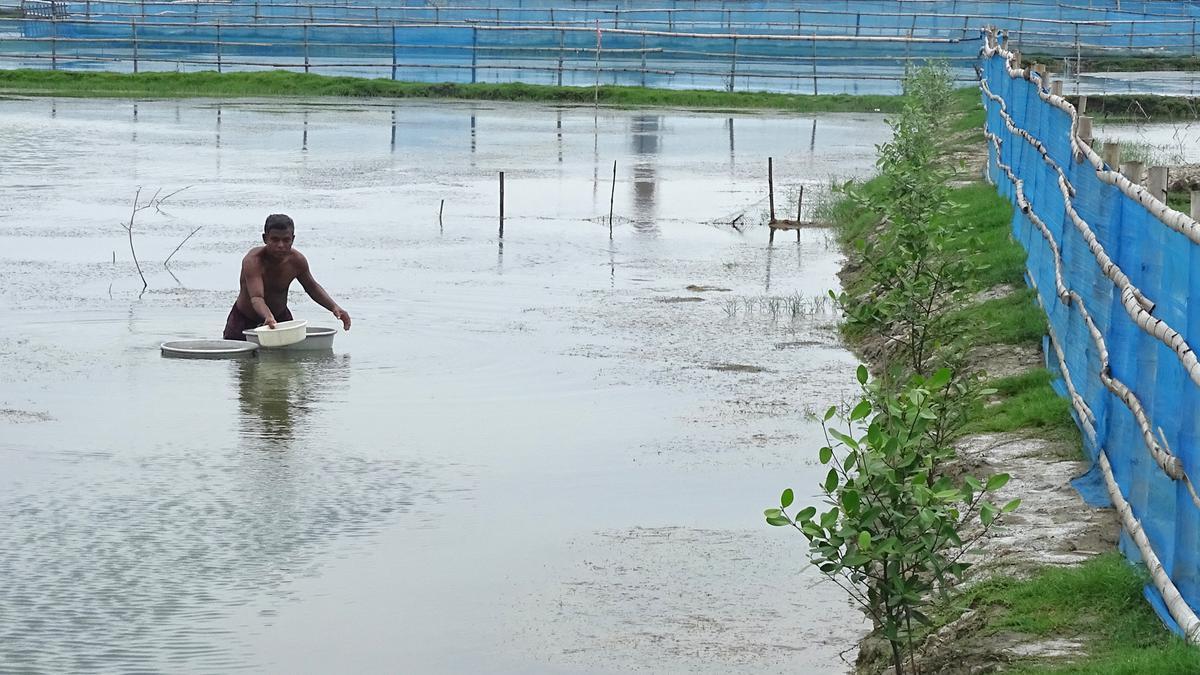Sundarbans aquaculture model wins FAO global recognition

FAO Honours Sundarbans Aquaculture Model for Global Sustainability Impact
Context
The Food and Agriculture Organization (FAO) of the United Nations has conferred Global Technical Recognition on a Sustainable Aquaculture in Mangrove Ecosystems (SAIME) model developed by the Nature Environment and Wildlife Society (NEWS), West Bengal.
The recognition was announced during FAO’s 80th Anniversary Celebrations and the World Food Forum held in Rome, Italy.
About the SAIME Model
- Full Form: Sustainable Aquaculture in Mangrove Ecosystems
- Developed by: Nature Environment and Wildlife Society (NEWS), an NGO based in West Bengal.
- Objective: Blend livelihood enhancement with mangrove conservation through eco-sensitive aquaculture.
- Geographical Focus: Indian Sundarbans — North 24 Parganas (Chaital) and South 24 Parganas (Madhabpur) districts.
- Coverage: Implemented across 29.84 hectares with 42 fish farmers.
Key Features
- Ensures 5%–30% mangrove coverage in aquaculture ponds.
- Uses mangrove litter as natural fodder — reducing reliance on chemical inputs.
- Encourages community participation and good aquaculture practices.
- Focuses on climate-adaptive, ecosystem-based aquaculture for coastal resilience.
- Promotes chemical-free shrimp farming (esp. Black Tiger Shrimp – Penaeus monodon).
Impact & Outcomes
- Economic:
- Farmers’ average net profit increased by over 100% due to reduced input costs.
- Environmental:
- Enhances mangrove regeneration, carbon sequestration, and coastal protection.
- Builds resilience against climate change and sea-level rise.
- Social:
- Strengthens livelihood security in climate-vulnerable regions of the Sundarbans.
Expert Remarks
Ajanta Dey, Joint Secretary of NEWS, noted that the SAIME model:
“Enhances coastal resilience, supports sustainable livelihoods, promotes chemical-free aquaculture, and contributes to global climate action.”
Experts also highlighted that sustainable aquaculture is crucial at a time when unregulated shrimp farming is rapidly altering land use in the fragile Sundarbans delta.
Analysis
The SAIME initiative demonstrates how local innovation and ecological stewardship can drive climate-smart development.
It provides a replicable model for other deltaic and coastal ecosystems worldwide where biodiversity conservation and livelihood security must coexist.
Conclusion
FAO’s global recognition of the Sundarbans SAIME model marks an international acknowledgment of India’s efforts in sustainable aquaculture, mangrove-based resilience, and climate-adaptive livelihood innovation.
Updated - October 15, 2025 10:53 pm | The Hindu